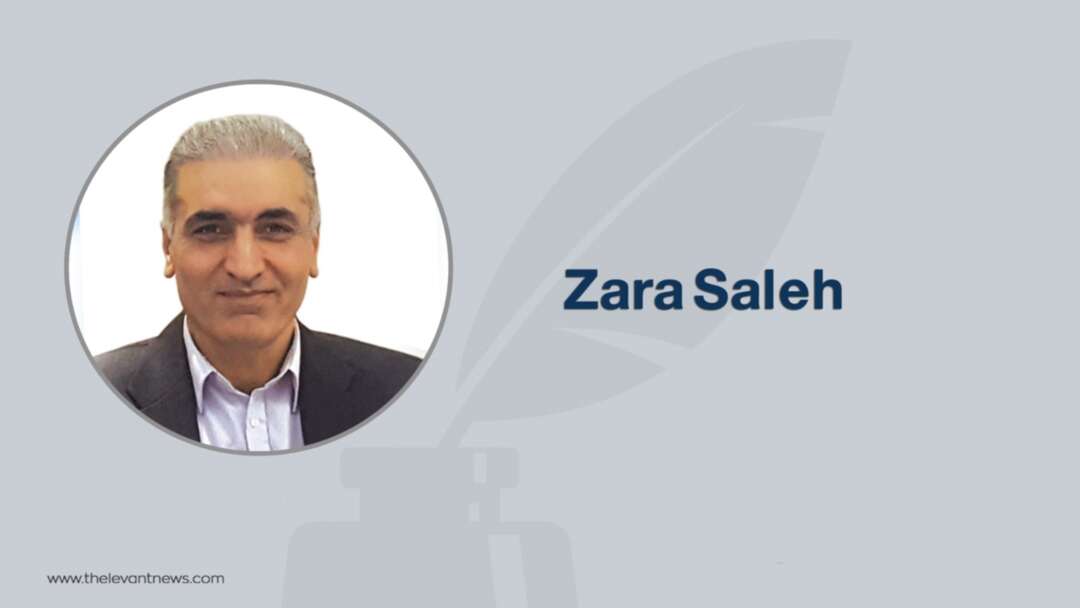-
Why Turkey insists establishing “ Safe Zone” North Syria?

Zara Saleh
There is no doubt that US agreed to set up a joint operation centre with Turkey in southern province to work on a planned buffer zone in North and East Syria. Turkey’s threats to invade eastern Euphrates and to launch a military offensive against the YPG which controls some enclaves in northeast Syria, even if the US agreed or not. Recently, the Turkish president Erdogan went so far in one of his speeches threatening the Syrian Kurds by ‘burying them under the soil.’
The US plan is based on keeping balance in between its two allies < Turkey and SDF >, then attempting to hash out a safe zone deal that would encourage Turkey to hold off on any military attacks.
Since the beginning of the Syrian uprising, Turkey’s messages towards the Syrian Kurds was obvious and clear that they were against any Kurdish autonomy in his southern border. Their announcements were always standing against any kurdish ambitious, even if the Kurds tried to create a state in a very small village anywhere.
Despite the fact that regarding the Turkey’s Phobia towards the kurdish issue and rights, there are some certain contradictions in Turkish position on many political issues. Firstly, why does Turkey want to invade and control all kurdish provinces in northeast Syria but it had a very special and economical relations with the Kurdish region in Iraq? Secondly, why didn’t Turkey mention any words regarding the safe zone when ISIS controlled large areas of northern Syria on the Turkish border? In addition, why does Turkey want to return the Syrian refugees by displacing them into kurdish areas inside Syria?
It is obvious that the Turkish governments Kurdophobia is in the core of its policies. Furthermore, Turkey now, in eastern Euphrates, are attempting to renew the same scenario of Afrin < A north- Western Syrian province that was a kurdish stronghold until a Turkish pinch in January 2018>. As a result, Afrin became a Turkish Vilayet< state >, with an Arab and Turkmen majority. Whereas, more than half of the kurdish population in Afrin has been displaced to different areas outside of their homeland. This experienced plan has already been implemented by Turkey and Russia to the people from eastern Gouta < south Syria>. They were displaced in north Syria, which the plan aims a demographic change based on sectarian strife. This deal was made between Russia and Turkey, where the areas of Southern Syria including Eastern Gouta, where handed over to the Syrian regime in exchange for allowing Turkey to occupy Afrin.
The newly established zone will be used by Turkey to return more than 3 million Syrian refugees. This plan, definitely, would lead to demographically reforming a border that is dominated by kurdish population which Turkey wants to transform into an Arab and Turkmen stronghold. It is a similar plan and will change the demography which Ba'ath Party did in the 60s by establishing the Arab Belt.
Turkey has not made commitments to Russia in terms of Astana’s agreement to eliminate extremists militia such as Al-Nusra front. Following that, it could lose Idlib in favour of Assad's regime. That is why Turkey is trying to assure its share in the ‘ Syrian Pie' after reaching a political solution over the Geneva negotiations. That is why Turkish government concerns about controlling Eastern Euphrates, simultaneously following its chronic complexity and increased sensitivity to any development related to the kurdish issue. But the main and big question is that to what stage will the US allow its NATO ally to achieve the expansionist desire and attempts to destabilize the areas of American influence? Any American accepting for the Turkish plan would probably affect its relations with the Kurds and it could push SDF to return back to the Syrian regime which Russia and Iran both want to happen soon.
You May Also Like
Popular Posts
Caricature
BENEFIT Sponsors BuildHer...
- April 23, 2025
BENEFIT, the Kingdom’s innovator and leading company in Fintech and electronic financial transactions service, has sponsored the BuildHer CityHack 2025 Hackathon, a two-day event spearheaded by the College of Engineering and Technology at the Royal University for Women (RUW).
Aimed at secondary school students, the event brought together a distinguished group of academic professionals and technology experts to mentor and inspire young participants.
More than 100 high school students from across the Kingdom of Bahrain took part in the hackathon, which featured an intensive programme of training workshops and hands-on sessions. These activities were tailored to enhance participants’ critical thinking, collaborative problem-solving, and team-building capabilities, while also encouraging the development of practical and sustainable solutions to contemporary challenges using modern technological tools.
BENEFIT’s Chief Executive Mr. Abdulwahed AlJanahi, commented: “Our support for this educational hackathon reflects our long-term strategic vision to nurture the talents of emerging national youth and empower the next generation of accomplished female leaders in technology. By fostering creativity and innovation, we aim to contribute meaningfully to Bahrain’s comprehensive development goals and align with the aspirations outlined in the Kingdom’s Vision 2030—an ambition in which BENEFIT plays a central role.”
Professor Riyadh Yousif Hamzah, President of the Royal University for Women, commented: “This initiative reflects our commitment to advancing women in STEM fields. We're cultivating a generation of creative, solution-driven female leaders who will drive national development. Our partnership with BENEFIT exemplifies the powerful synergy between academia and private sector in supporting educational innovation.”
Hanan Abdulla Hasan, Senior Manager, PR & Communication at BENEFIT, said: “We are honoured to collaborate with RUW in supporting this remarkable technology-focused event. It highlights our commitment to social responsibility, and our ongoing efforts to enhance the digital and innovation capabilities of young Bahraini women and foster their ability to harness technological tools in the service of a smarter, more sustainable future.”
For his part, Dr. Humam ElAgha, Acting Dean of the College of Engineering and Technology at the University, said: “BuildHer CityHack 2025 embodies our hands-on approach to education. By tackling real-world problems through creative thinking and sustainable solutions, we're preparing women to thrive in the knowledge economy – a cornerstone of the University's vision.”
opinion
Report
ads
Newsletter
Subscribe to our mailing list to get the new updates!






















